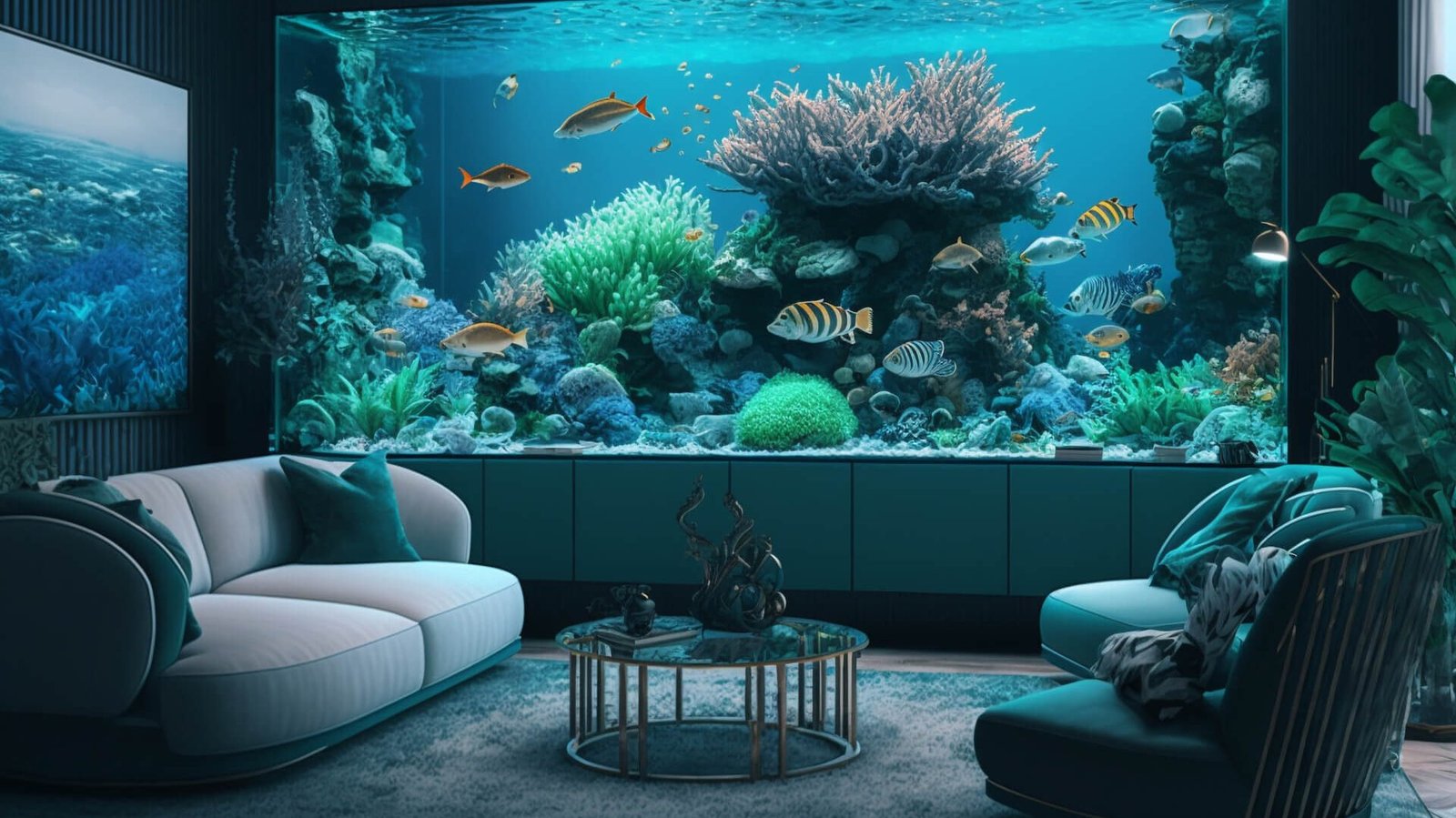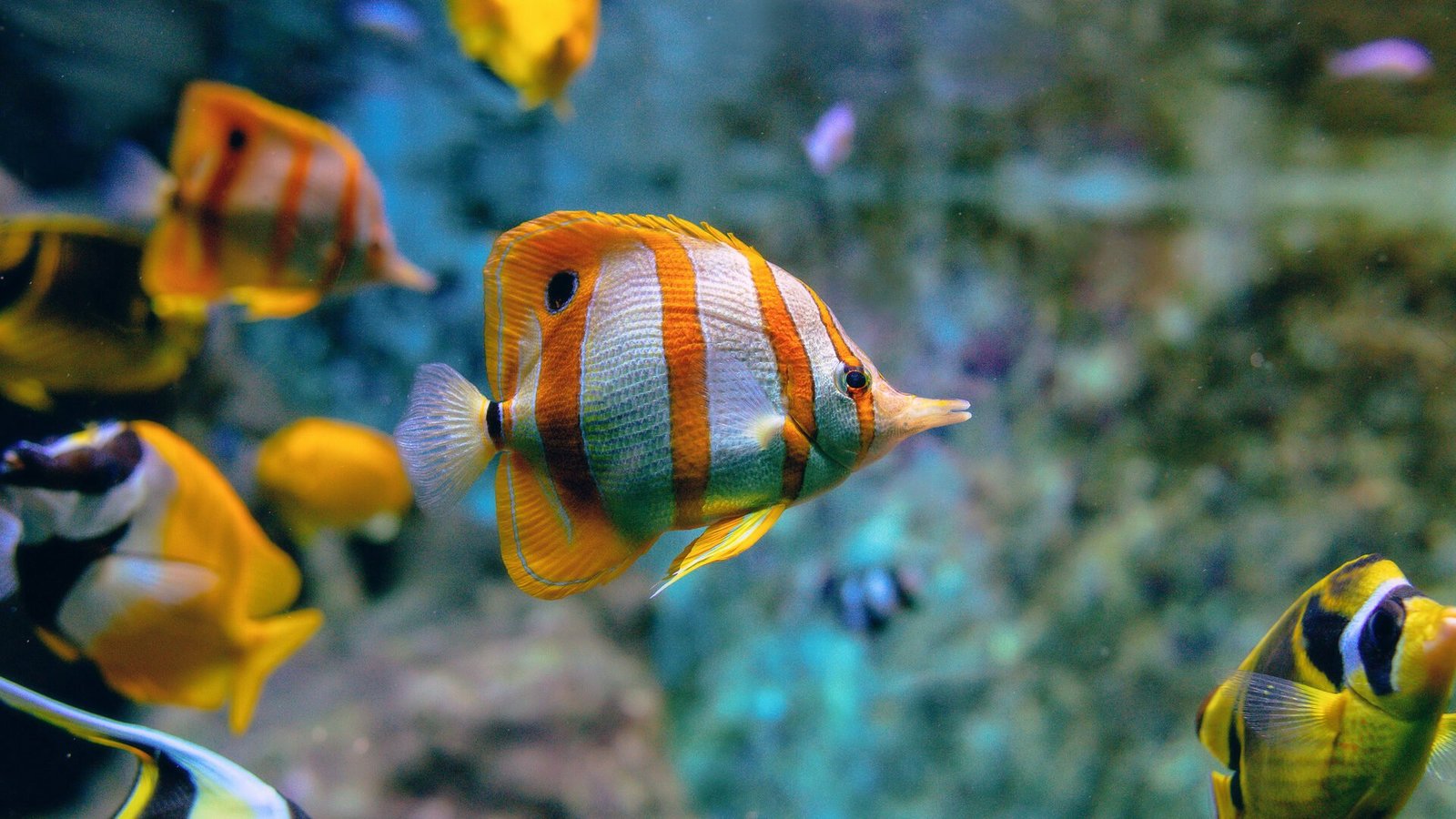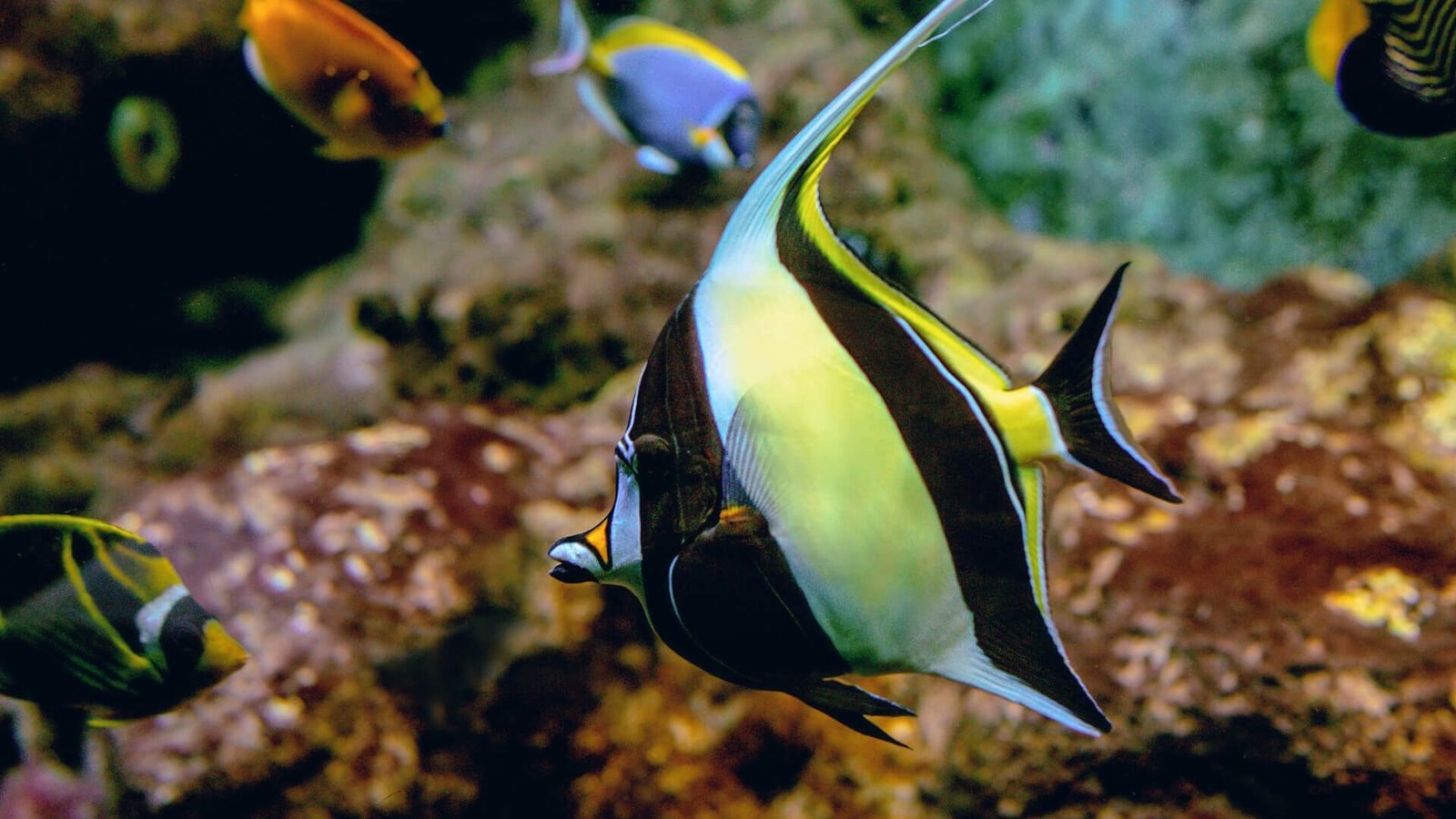- Benefits of Maintaining the Right Aquarium Temperature
- Understanding Temperature Requirements for Different Species
- Importance of Stable Water Temperature
- Temperature Preferences for Coldwater Fish
- Temperature Preferences for Tropical Fish
- Heating Requirements for Reef Tanks
- Monitoring and Adjusting Water Temperature
- Potential Risks of Incorrect Aquarium Temperature
- Methods to Maintain the Right Water Temperature
- Conclusion
- F&Q
- Q: What temperature should a fish tank be?
- Q: How do temperature changes affect aquarium fish?
- Q: What is the best temperature for aquarium water?
- Q: How often should I change the water in my fish tank?
- Q: How can I control the temperature in my fish tank?
- Q: What happens if the temperature in my fish tank is too high?
- Q: Can I keep cool water fish in a tropical aquarium?
- Q: How does the temperature of the water affect fish health?
- Q: What is the ideal water temperature for betta fish?
- Q: How does water temperature affect the oxygen levels in my fish tank?
Benefits of Maintaining the Right Aquarium Temperature
Maintaining the right temperature in an aquarium is crucial for the health and well-being of fish and other organisms. By ensuring that the water temperature is within the preferred range for the inhabitants, you can enjoy a variety of benefits.
Prevents Stress in Fish
Incorrect water temperatures can lead to stress in fish. Just like humans, fish thrive in environments that provide them with a sense of security and comfort. When the water temperature is too cold or too hot, it can cause unnecessary stress, disrupting their natural behavior and making them vulnerable to various health issues. By maintaining the right temperature, you can create a stress-free environment for your fish.
Boosts Immune System Health
Maintaining the right aquarium temperature also plays a vital role in boosting the immune system health of your fish. Fish that are kept in water that is too cold or too warm may experience weakened immune systems, making them more susceptible to diseases and infections. By ensuring that the water temperature is within the ideal range for the species you keep, you can help strengthen their immune systems, keeping them healthier and happier.
Reduces Health Ailments in Fish
One of the most significant benefits of maintaining the right aquarium temperature is the reduction in health ailments that fish may experience. Fish that are exposed to extreme temperatures may develop various health issues, such as fin rot, ich, or even death. By providing them with a stable and optimal temperature, you minimize the risk of these ailments and promote their overall well-being.
Understanding Temperature Requirements for Different Species
Different species of fish have different temperature requirements, and it is essential to understand these preferences to create a harmonious and healthy living environment in your aquarium.
Researching Temperature Preferences
Before adding fish to your tank, it is crucial to research their temperature preferences. Different species of fish come from various environments, such as coldwater or tropical regions. Understanding their natural habitat and preferred temperature range will help you choose compatible tank mates and maintain the right temperature for them.
Choosing Compatible Tank Mates
When selecting fish for your aquarium, it is important to choose tank mates that have similar temperature preferences. Mixing fish with significantly different temperature requirements can lead to stress and health problems for all the inhabitants. By selecting species that thrive in similar temperature ranges, you create a more harmonious and stress-free environment for your fish.

Importance of Stable Water Temperature
While it is crucial to maintain the right temperature for your aquarium, stability in water temperature is equally significant. Sudden fluctuations in temperature can be harmful to fish and other organisms. Understanding the importance of stable water temperature will help you ensure the well-being of your aquarium inhabitants.
Preventing Temperature Shock
Temperature shock can occur when there are sudden and drastic changes in water temperature. Fish that experience temperature shock may exhibit symptoms such as loss of appetite, lethargy, or even death. By maintaining stable water temperature, you prevent your fish from experiencing this potentially fatal condition.
Maintaining Optimal Conditions
Maintaining stable water temperature also helps to create optimal conditions for your aquarium inhabitants. Sudden changes in temperature can disrupt the delicate balance of the ecosystem, affecting the growth of beneficial bacteria and other organisms that contribute to a healthy environment. By providing a stable temperature, you foster a balanced and thriving aquarium ecosystem.
AMAZON
Temperature Preferences for Coldwater Fish
Coldwater fish, as the name suggests, prefer cooler temperatures compared to tropical fish species. Understanding their temperature preferences will help you provide the ideal conditions for these beautiful aquatic creatures.
Ideal Temperature Range
Coldwater fish generally thrive in temperatures below 70°F (21°C). This range provides them with the cool water they need to be comfortable and healthy. It is important to stay within this range to avoid any adverse effects on the well-being of your coldwater fish.
Common Coldwater Species
Some commonly kept coldwater fish species include goldfish, koi, and white cloud mountain minnows. These fish are well-suited for cooler environments and can offer stunning beauty to your aquarium. By maintaining the optimal temperature range for these species, you can ensure their longevity and overall health.

Temperature Preferences for Tropical Fish
Unlike coldwater fish, tropical fish thrive in warmer water temperatures. Understanding the temperature preferences of tropical species will help you create a suitable environment for these vibrant and colorful fish.
Ideal Temperature Range
Tropical fish generally prefer temperatures in the range of 75-80°F (24-27°C). This warmer water allows them to thrive and display their natural behaviors. It is important to provide this optimal temperature range to ensure the well-being of your tropical fish.
Popular Tropical Fish Species
There are countless species of tropical fish that can be kept in aquariums. Some popular tropical fish species include neon tetras, angelfish, and guppies. These fish are known for their vibrant colors and lively personalities. By catering to their temperature preferences, you create the perfect home for these stunning aquatic creatures.
Heating Requirements for Reef Tanks
Reef tanks are unique aquarium setups that mimic the conditions found in tropical coral reefs. As such, they require heating systems to maintain a safe temperature range for the inhabitants.
Importance of Warm Water Environment
Reef tanks aim to recreate the warm water environment that tropical coral reefs are known for. The temperature in these tanks needs to be higher than that of regular aquariums to support the growth of coral and other reef organisms. Heating the water ensures that the inhabitants can thrive in conditions that are reminiscent of their natural habitat.
Choosing the Right Heater
When setting up a reef tank, it is crucial to choose the right heater for the size and requirements of your tank. Submersible heaters are commonly used in reef tanks, providing reliable heating and temperature control. It is important to invest in a high-quality heater and to monitor the water temperature regularly to ensure that it remains within the optimal range for your reef tank inhabitants.

Monitoring and Adjusting Water Temperature
Monitoring and adjusting the water temperature in your aquarium is an ongoing process that requires attention and care. By employing appropriate methods, you can maintain a safe and comfortable temperature for your fish and other aquatic organisms.
Using Thermometers
The most basic and essential tool for monitoring water temperature is a thermometer. Submerging a reliable thermometer in your aquarium allows you to track the temperature consistently. It is recommended to place the thermometer where it is easily visible and to check it regularly to ensure that the temperature remains within the desired range.
Heater Maintenance and Calibration
Heaters play a crucial role in maintaining the desired temperature in your aquarium. Regular maintenance and calibration of your heater are essential to ensure its proper functioning. It is important to follow the manufacturer’s instructions for maintenance and to check the temperature readings against an accurate thermometer to ensure accuracy. This will help prevent any potential issues arising from a malfunctioning heater.
Potential Risks of Incorrect Aquarium Temperature
Maintaining the right temperature in your aquarium is crucial, as incorrect temperatures can pose several risks to the health and well-being of your fish and other aquatic organisms.
Fish Stress and Disease
When fish are subjected to incorrect temperature ranges, they can experience stress, weakened immune systems, and increased susceptibility to diseases. Additionally, extreme temperature variations can cause physical stress on their bodies, leading to adverse health effects and potential fatalities. It is essential to monitor and adjust the water temperature to prevent these risks.
Algal Blooms
Incorrect aquarium temperatures can also contribute to the growth of algal blooms. Algae thrive in certain temperature ranges, and if the water temperature is not maintained correctly, it can create an ideal environment for algae to multiply rapidly. Algal blooms can be harmful to your aquarium ecosystem, affecting the health of your fish and other organisms. By ensuring the right temperature, you can help prevent these unsightly and potentially harmful blooms.

Methods to Maintain the Right Water Temperature
There are several methods available to maintain the right water temperature in your aquarium. By employing these methods, you can create a comfortable and healthy environment for your fish and other aquatic organisms.
Heaters and Thermoregulation
The most common method for maintaining the right water temperature is by using heaters. Submersible heaters are designed to warm the water to the desired temperature and often come with adjustable settings to accommodate the temperature preferences of different species. By choosing a heater suitable for your tank size and needs, you can ensure a stable and optimal temperature for your aquarium inhabitants.
Temperature Control and Monitoring Systems
In addition to heaters, advanced temperature control and monitoring systems are available for more precise temperature regulation. These systems often include sensors, controllers, and alarms to help you maintain the desired temperature consistently. While these systems may require a larger investment, they offer greater convenience and peace of mind for keeping the temperature in your aquarium under control.
Conclusion
Maintaining the right temperature in your aquarium is vital for the health and well-being of your fish and other aquatic organisms. By understanding the temperature requirements of different species, providing stable conditions, and using appropriate methods to monitor and adjust the water temperature, you can create a stress-free and thriving environment for your aquarium inhabitants. Remember to prioritize the well-being of your aquarium inhabitants by maintaining the right temperature, and enjoy the beauty and tranquility that a healthy aquarium brings to your home.
F&Q
Q: What temperature should a fish tank be?
A: The ideal temperature for a fish tank depends on the type of fish you have. In general, most freshwater and tropical fish prefer a temperature between 75-80 degrees Fahrenheit (24-27 degrees Celsius).
Q: How do temperature changes affect aquarium fish?
A: Sudden or drastic temperature changes can be stressful for aquarium fish and may even lead to illness or death. It is important to maintain a stable and consistent water temperature to ensure the health and well-being of your fish.
Q: What is the best temperature for aquarium water?
A: The best temperature for your aquarium water is the one that suits the specific needs of your fish. Different fish species have different temperature preferences, so it is essential to research and understand the requirements of the fish you are keeping.
Q: How often should I change the water in my fish tank?
A: Regular water changes are important for maintaining good water quality in your fish tank. The frequency of water changes depends on the size of your tank, the number of fish, and the filtration system you have in place. As a general guideline, a 25-30% water change every 2-4 weeks is recommended.
Q: How can I control the temperature in my fish tank?
A: To control the temperature in your fish tank, you can use an aquarium heater to raise the temperature or an aquarium chiller to lower it. It is important to choose the right equipment and set it to the desired temperature range for your fish.
Q: What happens if the temperature in my fish tank is too high?
A: If the temperature in your fish tank is too high, it can cause stress, oxygen depletion, and even death for your fish. Additionally, high temperatures can promote the growth of harmful bacteria and algae. It is crucial to monitor and maintain the temperature within the recommended range.
Q: Can I keep cool water fish in a tropical aquarium?
A: It is not advisable to keep cool water fish, such as goldfish, in a tropical aquarium. Cool water fish have specific temperature requirements that differ from tropical fish. Mixing different temperature preferences can result in stress and compromised health for both types of fish.
Q: How does the temperature of the water affect fish health?
A: The temperature of the water directly affects fish health. Fish are cold-blooded creatures, and their body temperature is regulated by the surrounding water. If the water temperature is too high or too low, it can impact their metabolic rate, immune system, digestion, and overall well-being.
Q: What is the ideal water temperature for betta fish?
A: Betta fish are tropical fish and prefer a warm water temperature between 76-82 degrees Fahrenheit (24-28 degrees Celsius). It is essential to provide them with a heated aquarium or adjust the temperature using an aquarium heater.
Q: How does water temperature affect the oxygen levels in my fish tank?
A: Water temperature directly affects the dissolved oxygen levels in your fish tank. As the water temperature rises, the amount of dissolved oxygen decreases. Proper aeration and surface agitation can help maintain adequate oxygen levels for your fish.






















